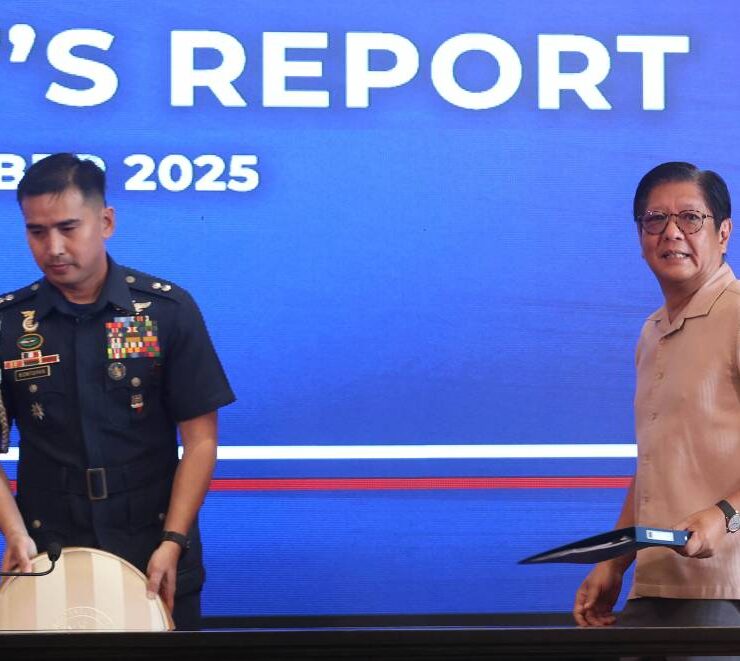Making sense of Trump’s triumph

Donald Trump did not win by a landslide. It only appears as if he did because of the large number of electoral votes that separates him from Kamala Harris. Though he also won the popular vote this time around (unlike in 2016 when he became president despite losing the popular vote to Hillary Clinton), the margin is much smaller than Biden’s lead over him in the 2020 election.
As the preelection polls predicted, seven battleground states spelled the difference between winning and losing the presidency. Where the pollsters miscalculated was in their supposition that these states were evenly split—i.e., that half would go to Harris and the other half to Trump. But, as it turned out, Trump prevailed in all the crucial battleground states, giving him the electoral votes he needed to clinch the presidency.
What the opinion polls had apparently failed to detect were the inroads that the Trump campaign was able to make among Black and Latino working-class voters, who, in the past, had voted solidly Democrat. Harris still won the bulk of their votes, but many, particularly among Latinos, voted for Trump. But, more important, an even bigger number simply did not show up for Harris, as indicated by the fact that, in all of these states, Harris got far less votes than Biden in 2020.
American media is filled with elaborate accounts of why Trump won, and Harris lost. Although some emphasize the economic factors (e.g., inflation) and others the cultural (e.g., anti-immigrant sentiments), they all converge on one common theme: Trump managed to tap into the despair and resentment of America’s marginalized communities.
Melody Barnes of the Karsh Institute of Democracy at the University of Virginia puts it this way: “The Trump presidency speaks to the depth of the marginalization felt by those who believe they have been in the cultural wilderness for too long and their faith in the one person who has given voice to their frustration and his ability to center them in American life.”
All this sounds eerily familiar to us in the Philippines. It is exactly how Rodrigo Duterte, coming from the political periphery, won the presidential election in 2016, and how Ferdinand Marcos Jr., the scion of the disgraced dictator, captured the presidency in 2022. Their rise to political power happened against the backdrop of a long-simmering disenchantment with the promises of the Edsa People Power Revolution—just as Trump’s durable appeal to America’s marginalized represents a reaction to the perceived failure of the Barack Obama years to deliver on the promise of change.
That this phenomenon—characterized by rising nationalism and the emergence of right wing populist strongman regimes—is occurring in many parts of the world can no longer be ignored. It is also remarkable that it is taking place amid intense debates surrounding cultural identity and individual rights on one hand, and the existential threats posed by climate change on the other. My sense is that these are all part of the complex struggle of societies to adapt to the imperatives of an autopoietic global system that operates according to its own needs and dynamics.
Let me try to explain, albeit somewhat sketchily given the limited space. We live today in a world society that has become increasingly integrated through advances in communications, travel, trade, and investments. This global system tends to exacerbate inequalities both within and across countries. As it integrates production on a global scale, it shifts parts of that production system to some regions, and other parts to other regions. As it incorporates, it also eliminates, producing prosperity in some regions and untold poverty in others.
The impact of this uneven globalizing process can be unsettling for individual societies in so many different ways. For example, regions that previously thought of themselves as the heartland of industrialization have found themselves de-industrialized almost overnight as entire industries moved overseas. Developing countries like ours have found their long-term programs of industrialization severely constrained by the volatile flows of finance capital and uncertainties in the world market. In desperation, we have turned to whatever forms of economic activity are made available to us—exporting labor rather than commodities and performing office work for the worldwide business process outsourcing industry, and its shady cousin, the offshore gaming operations and global money-laundering and scam hubs.
As nation-states grapple with these liquid circumstances, their tendency is to look for a strongman to pull the country together and make quick and drastic decisions on its behalf. A few try to regain their dominance by turning inward and withdrawing from their global commitments. In the end they will only find themselves sliding into greater problems with their own citizens and their ecological conditions—because these, too, bear the effects of a world society they cannot control.
—————-
public.lives@gmail.com





















